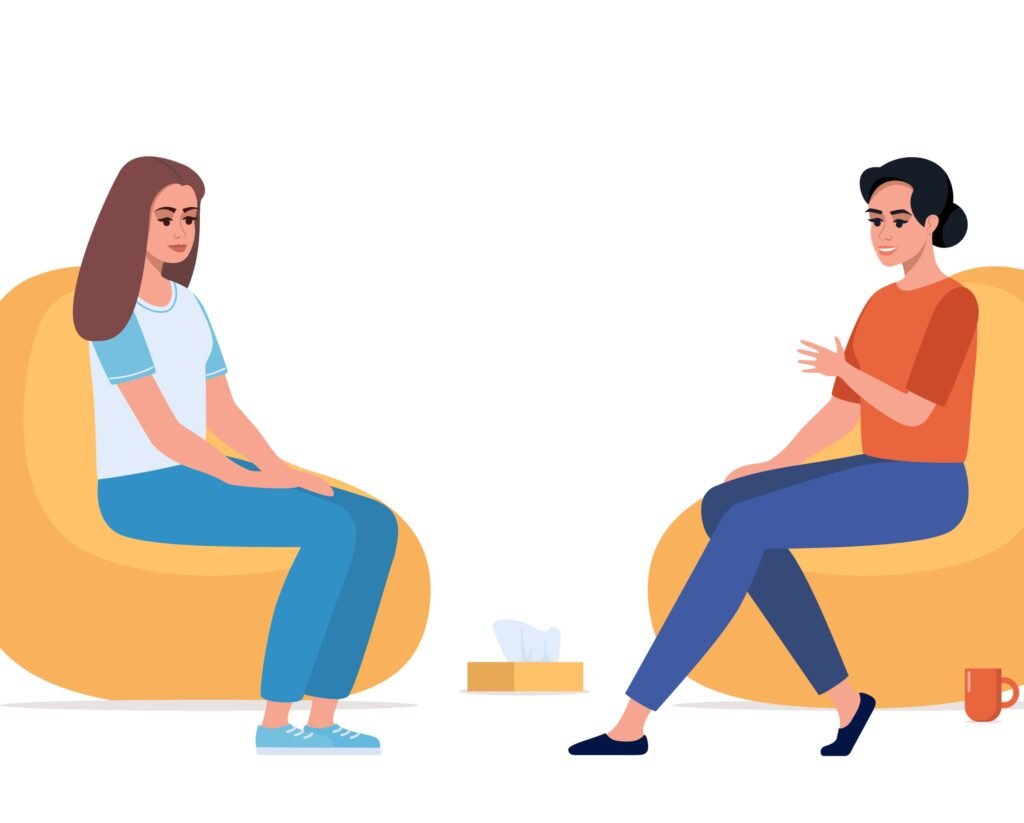Home » Dialectical Behavioural Therapy
If your emotions feel out of control, DBT could be for you.
Find support and acceptance while enacting positive changes through the guided support of a skilled therapist.

What is Dialectical Behavioural Therapy (DBT)?
Dialectical behavioural therapy (DBT) evolved from the more widespread therapy: cognitive behavioural therapy (CBT). Both are helpful tools with slightly different focuses. Cognitive behavioural therapy teaches clients how to practically alter damaging thought patterns and behaviours, while dialectical behavioural therapy can provide more in-depth guidance on emotional and social skills.
Dialectical behavioural therapy was originally created for people with borderline personality disorder, but its comprehensive framework has proved useful for a wide range of conditions such as post-traumatic stress disorder, substance abuse, eating disorders, anxiety, depression, self-harm behaviours, and suicidal ideation.
The main advantage that DBT has over other forms of therapy is its ability to effectively address the needs of clients who experience extreme emotions. It’s a structured approach that teaches emotional regulation, distress tolerance, mindfulness and interpersonal skills while providing much-needed support and acceptance.
This is where the term “dialectical” comes from. It means the existence of two opposites which are acceptance and change in the content of dialectical behavioural therapy.
How Does Dialectical Behavioural Therapy Work?
Dialectical behavioural therapy will vary based on the provider, but traditional versions are an involved structured program that usually takes 6 months to a year to complete, though some clients may need further assistance after this.
At Supportive Therapy, we will first conduct an assessment to determine if dialectical behavioural therapy is an appropriate fit for a given client’s needs. This also gives usan opportunity to manage expectations and assess whether the client is willing to commit to all the involvements required of their program.
With a very traditional approach to DBT and within a DBT specific setting, clients will usually have a combination of weekly 1 on 1 sessions with their therapist, weekly group training as well access to telephone crisis coaching. This comprehensive approach immerses clients into a supportive environment where they can learn valuable skills and get help applying these skills to their real-life situations through individual sessions.
At Supportive Therapy, our therapists pair DBT with other related modalities to the issues a client is experiencing. We recommend, at minimum, weekly individual sessions with the possibility of twice weekly depending on severity and level of crisis. WIthin Supportive Therapy, group counselling and telephone crisis coaching are not offered, however our therapists can ensure you are set up with programs offering these services if required.
Is Dialectical Behavioural Therapy Right For Me?
DBT is a powerful and effective tool when it’s applied appropriately to the right circumstances. It’s more involved than most other types of therapy, so it’s particularly helpful in cases where clients haven’t seen good results from other forms of therapy or are in a state of needing extreme intervention.
Dialectical behavioural therapy has been shown to result in less self-harm behaviour, fewer days of inpatient hospitalization, less substance abuse, and better emotional regulation. Despite all these potential benefits, this form of therapy isn’t the best option for everyone.
It works best with clients who are ready and willing to make changes in their lives and want to focus on the present and future instead of the past. Clients will also need the availability to commit to weekly individual and group sessions for an extended period and be open to completing homework assignments outside of therapy hours.
How Can Dialectical Behavioural Therapy Help?
Many people who seek out dialectical behavioural therapy feel out of control and unable to direct their lives in a positive direction. It can be frustrating, painful, and even frightening to be in this position, so the first goal of DBT is to empower clients to achieve better behavioural control.
This can be enormously beneficial, but it still isn’t usually enough to help clients reach an ideal point of stability. They’re still likely to experience an excessive amount of negative emotions and require help learning how to effectively process them. Working on this aspect of emotional wellbeing with the guidance of a therapist can reduce incidences of experiencing emotional extremes and lead to an overall improved quality of life.
Another crucial way dialectical behavioural therapy can help is by empowering clients to live a truly self-led life where they can find fulfillment and happiness. Clients may need help building self-esteem and self-awareness in addition to practical emotional skills for this, and dialectical behavioural therapy provides a path to help them do it.
Schedule a Free Consultation
Our online sessions aim to help you gain better behavioral control, effectively process emotions, and develop the skills needed to build a fulfilling and self-led life. Schedule a consultation to start your journey towards improved emotional well-being and stability.

